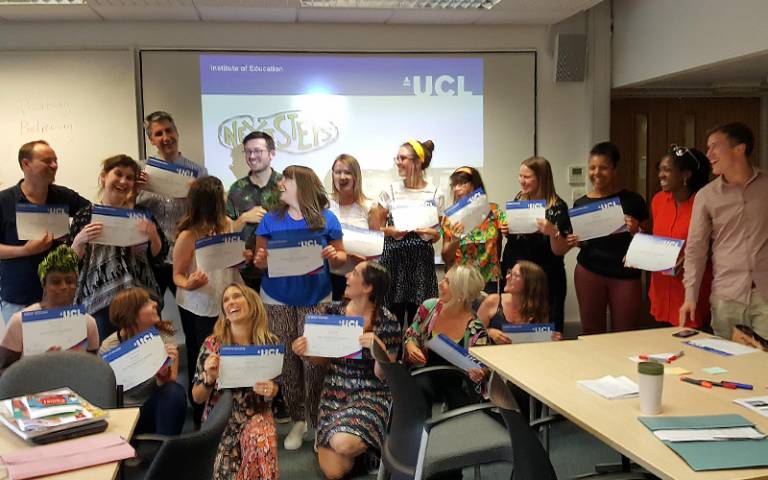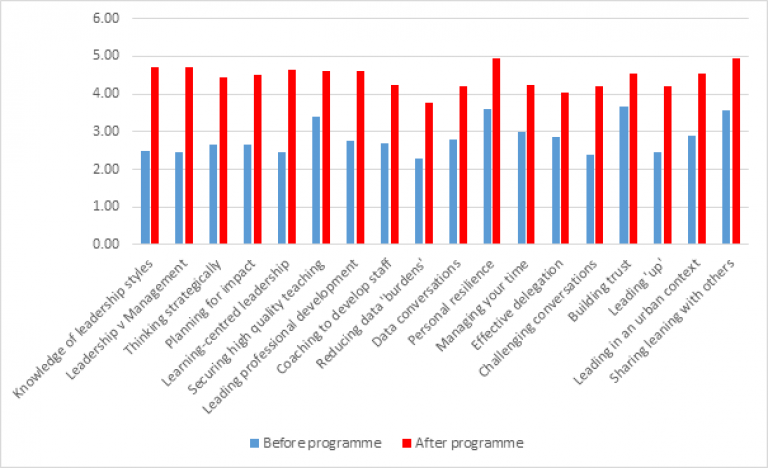Future Zone Leadership Programmes
Bridging experience gaps between middle and senior leaders.

22 October 2019
Future Zone is an educational improvement partnership of 21 schools in Islington, London, evolving out of an Education Action Zone formed in 1999. Future Zone currently comprises three secondary schools and 18 primary schools.
Over the past few years, Future Zone has collaborated with the UCL Centre for Educational Leadership at IOE on the creation of programmes for their new and emerging leaders.
Between 2017 and 2019, 20 of these partnership schools have engaged in two programmes: ‘Middle Leadership’ and ‘Stepping Up to Senior Leadership’, developing the leadership skills and identities of 83 teachers. Two of these teachers completed both programmes.
Challenge
In comparison to other countries in the OECD, teachers in England are young and move more quickly either up the career ladder or out of the profession. This results in middle leaders with relatively little experience, and with fewer ‘wise old colleagues’ around them to mentor or give them guidance. This picture is particularly true in London and so is a challenge for schools such as those in the Islington partnership.
The teachers on these programmes – some with several years’ experience, others with just two – had roles including assistant headteacher or vice principal; leads in literacy, maths, inclusion, or in a phase like Key Stage 1; heads of humanities, modern foreign languages, dance; or held other central roles such as SEN Coordinator or lead for Early Years.
Each participant had a line manager back at their school with whom they could discuss their progress on the programme.
Solution
The 'Stepping up to Senior Leadership' programme was made up of three face-to-face training days, inter-session tasks and readings, and a leadership for change project resulting in a presentation to their peers.
The 'Middle Leadership' programme – with content appropriate to colleagues at that stage in their careers – was similarly constructed, but with five face-to-face days spread across the year.
There were common ‘taught’ elements to each programme. They both began with a consideration of their identities as teachers and their transitions to middle leadership or emergence as leaders entering SLT.
Each group engaged with research about leading learning and leading professional learning. There was a strong focus for both on how to build teams, hold people to account and lead change, all while maintaining trust and integrity.
From the literature and the centre's own work that learning that might take place in a training room needs to be grounded in the contexts the teachers find themselves in if it is to lead to true development and improvement. This explains why the in-school element of the programme, where they devised and tracked the impact of a change project, was of equal importance.
Impact

For the middle leaders, the overwhelming outcome for the programme was the boost it gave to their confidence to meet the various challenges of their roles, for which their prior limited experience had not equipped them. They also valued the opportunity to meet and learn from others in similar positions.
It has been such as empowering learning journey as middle leader, which has left me with a vast array of knowledge, strategies and skills to support me in being an effective leader of my subject and other teaching-related duties.
Just allowing the opportunity to reflect on my middle leadership strategies and to think about how I can improve. It has been thought-provoking and with genuinely useful research and methods for implementing effective change.
The programme has helped me be confident and it has been a great opportunity to get ideas from other colleagues. I now understand that a ‘tool kit’ of leadership styles is vital with a focus on coaching to create a shared understanding about what needs to be achieved.
The senior leaders made similar comments:
The key to this course for me has been the practical application of its content into my everyday practice. Discussions, readings and activities were all very applicable and relevant to my experiences as a first year AHT.
It provided me with opportunities to think about how I want to lead and what areas of difficulty I need to be aware of. I feel I have become more aware of the type of leader I don’t want to be and the elements I want to include in my own practice.
I’ve been in my leadership role for a few years now, but this is the first time I have engaged with leadership theory and reflected on my own skills and development needs in such a thorough way.
Rarely do we get a chance to leave school and spend time on developing ourselves with no other distractions. To do this in a supportive environment with other teachers at a similar level to you has been very inspiring. It has taught ‘theory’ in a way that is practical and relevant to our everyday practice which means it has an actual impact in school day-to-day.
 Close
Close

